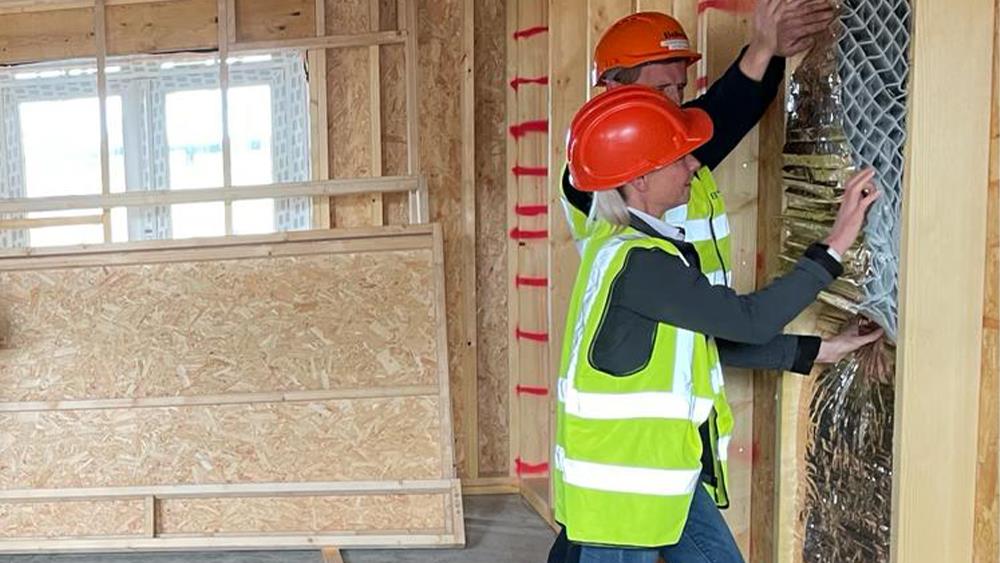

The problem is exacerbated by an ageing workforce, with 35% of current workers aged over 50 and many planning to retire within the next decade.
CPD training courses, speedier construction methods and schools outreach sessions are among the strategies revealed by insulation specialist Actis to help address the construction skills shortage, following a report which states the shortfall exceeds the million mark.
Actis was responding to Checkatrade's Annual UK Trade Skills Index report which revealed that the UK needs another 1.3 million skilled workers and 350,000 apprentices in order to meet government housing and net zero targets, along with home improvements in the coming decade.
Checkatrade has come up with a three-point plan to help address the shortfall - encouraging companies to take on apprentices, improving training and encouraging schools to interest youngsters in construction carers - with Actis adding a fourth to the mix - increasing build speed.
On the skills upgrade front, Actis is already helping architects, specifiers, builders and building control officers to gain new understanding about achieving net zero, courtesy of its free RIBA-approved CPD training courses - Tomorrow's Insulation Solutions for Future Homes Standards and Addressing the performance gap with reflective insulation.
And it is involved in school and college outreach initiatives, with regional specification manager Amaret Chahal speaking to students at Barnsley College about the joy of construction and Area Sales Manager Tom Hendzel helping out with lectures to construction trainees at Cornwall's Truro and Penwith College.
Sales Director Steven Ellis has been working with primary age children in Bedfordshire, while Women in Construction ambassador and fellow Sales Director Jemma Harris has spoken to students in Yorkshire at a CITB careers event.
Actis UK and Ireland Sales Director Mark Cooper adds that embracing swifter construction methods also plays an important role in helping build more homes.
"Creating more modular, offsite homes, which can be built up to 30% more quickly than traditional brick and block, will not only enable the homes to be delivered more quickly, but will also ensure a consistent quality and more effective thermal efficiency," he said.
"Some elements of the build can be carried out equally well by tradespeople at the early part of their careers, freeing up the more skilled end of the workforce to carry out more complex tasks."